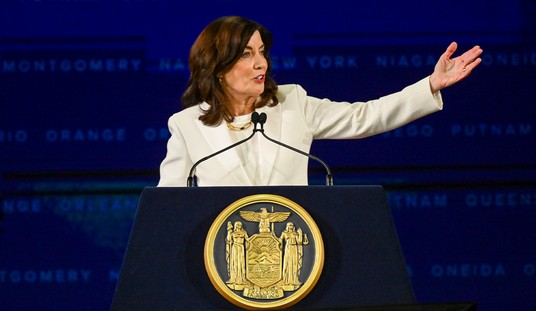The folks over at OPEC, the Organization of Petroleum Exporting Countries, must think we’re pretty stupid. The other day, Chakib Khelil, the current OPEC president, asserted that "the intrusion of bioethanol on the market" is responsible for 40% of recent increases in the price of oil.
Now how exactly would that work? How does growing sugarcane in Brazil or corn in Iowa push up the price of oil sucked from holes in the ground in Saudi Arabia, Iran and Venezuela? If we roasted the corn and put the sugar in coffee -- instead of making it into alcohol fuels -- would oil prices go up less?
And if mixing a little ethanol in with gasoline has caused much of oil’s latest price rise, does it follow that replacing oil entirely with alternative fuels would result in even higher oil prices? By that logic, if everyone switched from Coca Cola to Kool-Aid, the price of a bottle of Coke would go up rather than down. (And if you believe that, “drinking the Kool-Aid” might be an apt description for what you’ve been up to.)
They say we live in an Information Age but where energy is concerned it’s more like a Disinformation Age, thanks in no small measure to the money and clout wielded by OPEC – a cartel whose sole interest is to preserve petroleum’s near-monopoly of the transportation fuel market and keep the price of oil as high as possible.
Please note, too, Khelil’s term for competition: an “intrusion” on the market. Guess OPEC won’t be giving away any Milton Friedman Awards this year.
Perhaps Kheilil believes he can get away with blaming the global energy crisis on farmers because so much of the media embraced the earlier slander that ethanol production is causing hunger. In fact, of course, it’s the other way around: Rising oil prices have contributed to higher food prices because oil is used to cultivate crops, to fertilize crops, to transport crops and to process agricultural products.
But doesn’t devoting farmland to fuel mean there is less land available for food production? Not to any significant extent because we live in a country where there is so much arable land that for years the government has been paying farmers not to farm all of it (lest too much food be produced and prices fall so low that farmers can’t make a decent living). Nor has agricultural science reached the limits of how much can be produced per acre.
Recommended
What’s more, in other parts of the world – Latin America and Africa, for example -- there are vast expanses of land that can be sown (excluding rain forests and critical habitat) -- if farmers have the tools.
Brazil provides an example: Over the past 30 years, Brazilian farmers have greatly increased the amount of sugarcane they produce and the amount of alcohol fuel they derive from it. They now have more than enough sugar for the table, and they also are on track to displace half the country's gasoline demand with ethanol -- at $70 per barrel, according to Florida International University scholar George Philippidis. As you well know, oil today is about twice that expensive.
Brazil has gone from 80 percent foreign oil dependence to zero per cent dependence. Over the same period, the U.S. has gone from 30 percent dependence to over 60 percent. In addition, Brazil should soon derive 15% of its electricity by burning sugarcane waste.
A more plausible rap against ethanol: In the U.S., it receives government subsidies. But the research being done thanks to these subsidies is already giving rise to technologies that will allow fuel in the not-too-distant future to be made from crop residues, grasses, weeds, algae and perhaps plants bioengineered specifically for this purpose – and able to be grown on land unsuitable for food crops.
What’s more, do you really think oil is not subsidized? Former CIA director James Woolsey estimates that U.S. oil companies receive preferential tax treatment worth more than $250 billion a year – and that doesn’t include the military costs necessary to keep oil supplies flowing around the world. We do that because oil is a strategic commodity: Western economies can not function without it. That will be true until the day oil is forced to compete with a variety of alternative fuels.
But that day will be long in coming if OPEC has anything to say about it. And OPEC has a lot to say about it, including Chakib Khelil’s claim that the mere prospect of competition is driving the cost of oil up, rather than providing us with the only weapon that can drive it down. It’s a lie – a big, bold, and obvious lie. But OPEC figures we’re stupid enough to believe it.

























Join the conversation as a VIP Member